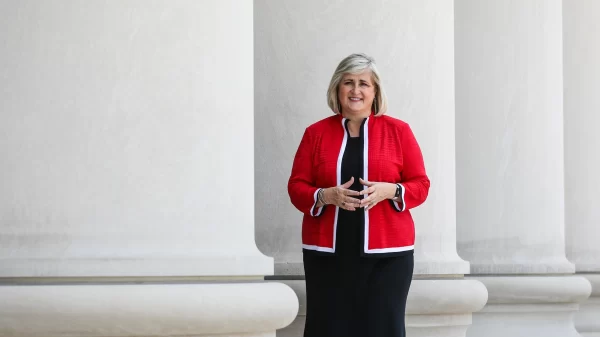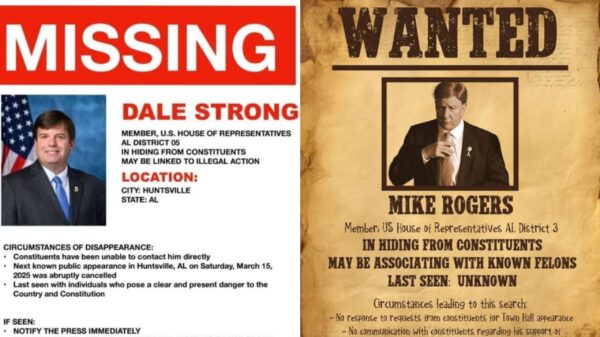by Representative Allan Farley
I have spent the better part of my life in public service, with 37 years in law enforcement, and now I find myself early in my third year of another kind of public service as a member of the Alabama Legislature.
I’ve faced a number of challenges – first learning my way around the House of Representatives, then becoming part of the Republican leadership’s commitment to enhance Alabama’s economic conditions. Now I find myself sponsoring a piece of legislation that has opened my eyes to the real meaning of “hard work” down in Montgomery.
I don’t think I had any illusions that this kind of work would be easy, because nothing worth doing ever is. The Lord never promised us that our time here would be easy. But this week’s experience has caused me to worry about the true meaning of “public service”.
Early in this session I accepted the challenge to eliminate wasteful and unnecessary spending required under Alabama’s election laws. That should be a breeze, right? Everybody wants to save taxpayer dollars, right?
Well, I am discovering that passing meaningful legislation is certainly not easy. In fact, when I started this journey a few weeks ago a senior Republican legislator told me that listing the taxpayer savings from this bill would not automatically create legislative “low-hanging fruit” that would pass without elbow grease and commitment. (Boy, nasty emails from elected public servants have driven that point home.)
I like to think of this bill as a three-legged stool, and the first leg relates to our probate judges. Would you believe that many probate judges around the state still get a check from the county for “preparing” a voter list for each election? As hard to believe as it sounds, the check pays the probate judge one nickel for each name that is printed on the list of voters for his or her county.
And even though the voter list is now “prepared” by a statewide voter registration database in Montgomery, some who have received this money in the past are mounting a defense to justify the payments they have received.
That money is not designated to go into the judge’s office budget. Instead, it goes to the judge personally. I am proud to say Jefferson County Probate Judge Alan King is one of a handful of judges around the state who do not accept this money, which can really add up. In the typical election year, it is paid for the primary, the runoff and the general election. Last year, for the March primary alone, this expense totaled nearly $95,000 in personal payments to probate judges.
My bill would repeal this “nickel-a-name”, and, as its second leg, it would also make significant changes to “supplemental compensation” for the person who oversees absentee ballots. (Go to Alison.com to find a copy of HB275 and learn more.)
Right now, the Circuit Clerk in each county is usually the absentee election manager. Rather than performing this public service as part of their regular job duties, they are actually given $125 a day in supplemental pay for the 46 days leading up to EACH election (that means primary, runoff and general election). That money is paid for 46 days (including Saturdays, Sundays and holidays), and it doesn’t matter whether the Circuit Clerk actually performed any absentee ballot duties on that day.
Once again, like the “nickel-a-name” probate judge supplemental check, these dollars don’t automatically go into the budget for the office of circuit clerk either. The clerk can accept the money personally and put it in his or her pocket.
I fully understand that elections put extra responsibilities on many elected officials and their staffs. The sheriff is responsible for ballot security for every vote cast in a county. (Remember, I was the Jefferson County Assistant Sheriff from 2003 -2010.) In Jefferson County it takes a lot of deputies to secure 188 polling places. However, Alabama law doesn’t provide for the sheriff to receive a “supplemental check” for those election duties. When you know the responsibility is yours you budget for it. (OK, I admit it; I did telephone Sheriff Mike Hale the other day to see if he had been pocketing a check I didn’t know about. He laughed hysterically.)
There is an argument that the circuit clerk’s offices around the state are already stretched thin after years of cuts and tight budgets. That’s why one idea on the table would make money available to pay overtime for the circuit clerk’s staff members, who, like the sheriff’s deputies, are probably the ones actually handling absentee ballots anyway.
I certainly support paying county employees for working extra hours to handle the absentee ballots. But giving an elected official a “supplemental” check for performing duties related to our elections is simply wasteful and unnecessary.
The third leg of the election expense stool is proving no less difficult than the other two. Alabama law currently requires numerous election-related ads to be printed in newspapers, including publication of the entire voter list. (Jefferson County spent $96,000 on newspaper ads during last year’s primary.)
There was a time when newspapers were the best way to reach large numbers of citizens, but that day is past. Our solution is, in most cases, to reduce the ads to display ads (not classifieds) giving notice of where the information is available online. I believe this will make the voter list more available to citizens, who would still be able to get a hard copy from the probate judge if they prefer.
In the end, this bill would save Alabama taxpayers almost $3 million every election. (It would save Jefferson County over $100,000 per election. That could put a few folks back to work.)
Passing this bill into law is not going to be easy. Taking money away from politicians is like chasing a bear with a switch. But it’s the right thing to do.
Luke 12:57 “And why do you not judge for yourselves what is right?
God Bless America!!!













































